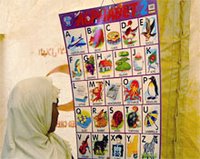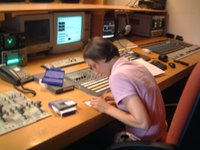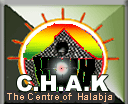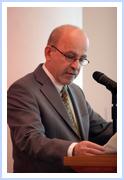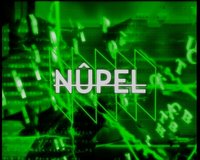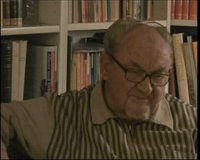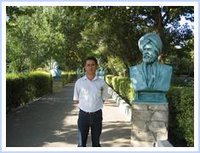12/15/2005
KurdishMedia.comPRESS STATEMENT
6 December 2005
Signed by 134 Kurdish and Turkish writers, academics, artists, and musicians
It seems that our country cannot deal effectively with the mindset which has its roots in the state of conflict of the last quarter of a century. It may also be that some groups within society wish to see the continuation of this conflict and negative atmosphere. This position adopts an isolationist approach and is blind to the efforts for democratization and peace. This is the result of the military coup carried out 25 years ago.
Turkey, however, has now turned towards Europe but it should be understood that the European Union process has been taking place for the last 40 years. Only in the last 3-5 years has the process made significant strides and it is undeniable that the suspension of conflict and partial peace that continued for the previous seven years has been a decisive factor in this accession process.
We view with sadness and alarm how some groups aim to make Turkey abandon its efforts towards democratization and peace and are using both secret and open methods. We do not know of any other country which causes so much destruction in defence of national security.
The one thing that we have to understand is that the political and technological developments show clearly that nothing can be as it was before. Neither Turkey nor the Kurds are the same as they were thirty years ago. It is important to realise that every Kurdish individual, artist and intellectual is determined to search for their people's rights by democratic means.
The challenge for Prime Minister Mr. Recep Tayyip Erdogan, who says that he "recognizes the Kurdish Question", is whether he truly recognises the question within the framework of the Kurdish people's democratic rights or not.
Mr Erdogan claimed that the legal obstacles that are in the way of the Kurdish people's democratic rights were abolished during the European Union process. In some areas these claims consist of symbolic steps. In practice however the situation can be as bad as during the Ciller period or yet worse than the time of the military coup of 12 September 1980.
For example, the recent events in Semdinli, Hakkari and Yuksekova are worse than what happened in the Ciller period. The denial policy which is breeding distrust in society and creating obstacles for the peace process is no different from the methods used by the nationalist DSP-ANAP-MHP government. The isolation, attacks and denials against the Kurdish language, culture and art also resemble what happened under past governments.
Now there is the very worrying campaign to close Roj TV and the crisis which was started by a speech made by the Commander of Land Forces General Buyukanit reached a peak in Denmark with the visit of Erdogan.
The Roj TV crisis has become an important issue since anyone who has been on the channel faces the possibility of judicial punishment. This shows that Turkey is very far away from the European democracy. The attitude of Deniz Baykal, leader of CHP, to this subject has to be condemned.
While the European Union plans to enlarge its existent democratic structure, the anti-democratic attitude towards the Kurdish language, culture and art in our country creates a feeling of tremendous disappointment.
In fact we had supported through our signature campaign the statements by Mr Erdogan recognising the existence of a Kurdish question. And we had waited with anticipation for the steps he would take following such a statement. And we had hoped that the obstacles imposed on the development of Kurdish music, cinema, theatre and literature will be removed one by one.
One of our hopes was to establish a TV channel broadcasting from Turkey to enable Kurdish musicians, actors, writers and film producers to express themselves. In reality, Roj TV, the only medium by which Kurds can express themselves, is under threat of closure. Nonetheless we have scripts for television series, music videos, documentary films, theatre plays, cinema films, entertainment and children's programmes. We announce to enter into talks with international television channels interested in broadcasting our productions.
Under present circumstances we do not think there are any communication mediums which would be willing to broadcast work which reflects the Kurdish culture and art. Those who claim that one can develop his/her own culture and speak his/her language are also preventing and threatening the people who want to develop the Kurdish language and culture.
The 12 September regime burned our music, books, films and plays and today's system wants us to destroy our minds and cultural creations ourselves. Unfortunately, this seems to be the only difference between 12 September and today. If the national channels will not open their broadcast to us and if Roj TV is closed down, our work might as well be burned.
We would like to ask government officials what they think will be addressed through the programme on TRT-3, which is limited to half an hour per week, does not answer to any need and which is very far from reflecting Kurdish culture and art.
Furthermore, we offered the TRT assistance on the content, dubbing, translation, documentary films and production of the half an hour program, but we have not received any reply positive or negative. We think that the attitude of TRT is significant.
In addition, we are worried about the incorrect use of the Kurdish language used in these broadcasts because the rules are not used correctly.
There is also a serious issue with certain television companies which do not broadcast our music videos even though the agreed sum is paid to them. As a result, we face financial loss because our right to broadcast and publicity is usurped.
Government officials need to urgently deal with these injustices and remove the legal and actual obstacles facing the Kurdish language, culture, art and literature. In truth the Kurdish language, culture and art are under attack and in danger of being silenced. The systematic denial of and obstacles on the Kurdish language, culture and art show themselves in the attacks on Roj TV.
We, the associations, organizations and artists whose names are listed below, want to see an end to the attempts to close down Roj TV, which right now is the most important tool for the growth and expression of the Kurdish language, culture and art.
We want to see the creation of new opportunities for all languages and cultures which have been denied for years in Turkey, to allow them to be expressed freely. We want the life with all the colours of our country, peace and brotherhood not to be obstructed.
Translated from Turkish original
BASINA VE KAMUOYUNA 06.12.2005
Ülkemiz, son çeyrek yüzyılını kapsayan çatışmalı ortamının yarattığı ruh halinden kurtulamıyor bir türlü. Ya da birileri hala bu çatışmalı ortamın ve bu ruh halinin devam etmesini istiyor. Bu ruh hali bütün demokratikleşme çabalarına, bütün barış çabalarına kulak tıkayan ve bu çabalara tecrit uygulayan bir ruh halidir. Bu ruh hali "netekim" 25 yıl önce yapılan darbenin yakıcı bir şekilde etkisini taşıyan bir haldir.
Ama birilerinin artık algılaması gerekir ki, Türkiye son yıllarda yüzünü Avrupa Birliğine çevirmiştir. Ve yine birileri bilmeli ki, Avrupa Birliği süreci her ne kadar Türkiye'nin son 40 yıllık politikasını ifade etmekte olsa da, bugünkü hükümet yetkililerinin de belirttiği gibi bu süreç son 3-5 yılda katlanarak hızlandırılmıştır. Ve hiç kimse bu sürecin hızlanmasında 7 yıldır sürdürülen çatışmasızlık ortamının ve kısmi barışçıl ortamın etkisini görmezden gelmemeli.
Ama kaygıyla ve üzülerek izlemekteyiz ki, Türkiye de bazı kesimler bu ülkenin demokratikleşme ve barış şansını yitirmesini istiyor, bunun için çeşitli açık ve karanlık faaliyetler yürütüyor. Ülke güvenliği bahane edilerek ülkesine bu kadar fazla zarar veren başka bir ülke bilmiyoruz maalesef. Algılanması gereken şu ki, dünyadaki gerek siyasal, gerekse teknolojik gelişmeler artık hiçbir şeyin eskisi gibi olamayacağını açıkça göstermektedir. Ne Türkiye 30 yıl önceki Türkiye'dir ne de Kürtler. Ve bilinmelidir ki bugün her Kürt bireyi, sanatçısı, aydını kendi haklarını demokratik yollardan aramaya kararlıdır. Sorun, "Kürt meselesini tanıdığını" söyleyen Başbakan Sayın Recep Tayip Erdoğan'ın Kürt meselesini Kürtlerin demokratik hakları çerçevesinde tanıyıp tanımaması sorunudur. Sayın Başbakan, Avrupa Birliği sürecinde Kürtlerin demokratik hakları önündeki yasal engellerin kaldırıldığını iddia ediyor. Bu iddialar bazı alanlarda sembolik düzeyde atılan adımlardan ibarettir. Uygulama ise adeta Çiller dönemini ve hatta kimi zaman 12 eylül dönemini dahi aratır boyutlara ulaşmaktadır. Örneğin son dönemlerde Şemdinli, Hakkari ve Yüksekova'da yaşananlar Çiller dönemini aratır tarzdadır. Öte yandan toplumu geren, barışa dair atılacak adımların önünde engeller yaratan tecrit uygulaması, milliyetçi bir hükümet olan DSP-MHP-ANAP hükümetini dahi yine aratmaktadır. Kürt dili, kültürü ve sanatına karşı da uygulanan tecrit, yok sayma ve saldırılar da yine geçmiş hükümetleri aratmaktadır. Nitekim Kara Kuvvetleri Komutanı Orgeneral Büyükanıt'ın bir konuşmasıyla başlayan ve onun ağzından Erdoğan tarafından Danimarka'da zirveye taşınan Roj TV krizi ve kapatılması yönünde geliştirilen kampanya, kaygı vericidir.
Nitekim, Roj TV'ye Türkiye'den katılan herkesi takip altına alma, onları cezai müeyyidelerle tehdit etme boyutuna vardırılan Roj TV meselesi, Avrupa Birliği'ne aday Türkiye'nin Avrupa demokrasisine ne kadar uzak olduğunu gösterirken, CHP Genel Başkanı Sayın Deniz Baykal'ın konuya ilişkin ise tutumu esefle karşılanacak boyuttadır. Avrupa Birliği, mevcut demokratik yapısını daha da genişletmeyi planlarken, ülkemizde geliştirilmekte olan özellikle Kürt dili, kültürü ve sanatına yönelik antidemokratik tutum ne yazık ki hayal kırıklığı yaratıyor. Oysa bizler, Sayın Başbakan'ı Kürt meselesini tanırken ve isim koyarken imzalarımızla desteklemiştik. Ve o açıklamaların arkasından atacağı adımları heyecanla beklemiştik. Ve Kürt müziği'nin, sineması'nın, tiyatrosu'nun ve edebiyatının gelişimi önündeki engellerin bir bir kaldırılacağını umut etmiştik.
Umutlarımızdan biri de, Kürt müzisyenlerin, aktörlerin, edebiyatçıların, tiyatrocuların ve sinemacıların kendini ifade edebilecekleri ve Türkiye'den yayın yapabilecek bir TV kanalının kurulmasıydı. Ama bugün geldiğimiz noktada, böyle bir adımın atılması bir yana, Kürtler'in şu an kendilerini ifade edebildikleri tek araç olan Roj TV de kapatılmaya çalışılıyor.
Oysa elimizde Kürtçe dizi senaryoları var, kliplerimiz var, belgeseller var. Tiyatro oyunları, sinema filmleri, show programları, çocuk programları var.
Şimdi buradan sesleniyoruz: Bu çalışmalarımızı yayınlayacak ulusal bir televizyon kanalı varsa, bizler eserlerimizi yayınlamak için bu yayın kuruluşu veya kuruluşlarıyla gerekli görüşmeyi yapmaya hazırız. Evet, var olan anlayışla her hangi bir yayın kuruluşunun, Kürt Kültür ve sanatını yansıtan eserleri yayınlayabileceklerini düşünmüyoruz. Çünkü kendi dilinizi konuşabilirsiniz, kültürünüzü geliştirebilirsiniz diyenler, Kürt dili ve kültürünü geliştirmek isteyenlere de her türlü engeli çıkarmaktan ve her türlü tehdidi savurmaktan geri kalmıyorlar. 12 Eylül rejimi bizim albümlerimizi, kitaplarımızı, filmlerimizi, oyunlarımızı yakıyordu. Bugünkü sistem de ise bize adeta eserlerimizi yakmamız dayatılıyor. Bugünü 12Eylül'den ayıran tek fark budur maalesef. Ve eğer ulusal kanallar yayınlarını bize açmayacaksa, Roj TV de kapatılacaksa, halka ulaşamayacak olan eserlerimizi yakmaktan başka çaremiz kalmayacak maalesef.. Buradan yetkililere sesleniyoruz: TRT-3'te haftada yarım saatle sınırlı olan ve hiçbir ihtiyacı karşılamayan, Kürt kültür sanatını da yansıtmaktan çok uzak olan programların neyi çözdüğünü sanıyorsunuz? Üstelik TRT yetkililerine, yapılmakta olan yarım saatlik yayının içeriğine, dublajından çevirisine, belgeselinden program yapımına kadar teklif sunduk. Ancak TRT'den olumlu ya da olumsuz bir cevap dahi alamadık. TRT'nin bu tavrını manidar buluyoruz. Nitekim söz konusu yayında, Kürt dilinin tüm kuralları altüst ediliyor ve bizler bundan ayrıca kaygı duyuyoruz. Öte yandan çektiğimiz Kürtçe klipler, ilgili kanallara gerekli ücreti ödenmesine rağmen hiçbir şekilde yayınlanmıyor. Dolayısıyla reklam ve tanıtım hakkımız da gasp edildiği için ciddi ticari zararlara uğramaktayız.
Devleti yönetenlerin acil olarak yapması gereken şey; bu haksızlığı derhal gidermeleri; Kürt dili, kültürü, sanatı ve edebiyatı önündeki yasal ve fiili engelleri ortadan kaldırmaktır.. Çünkü saldırı altında olan ve susturulmak istenen aslında Kürt dili, kültürü ve sanatıdır. Kürt dili, kültürü ve sanatına ilişkin sistematik yok sayma ve engelleme çabası bugün kendini Roj TV ye saldırılar şahsında göstermektedir. Biz, aşağıda ismi bulunan kurum, kuruluşlar ve sanatçılar olarak şu anda Kürt dilinin, kültürünün ve sanatının gelişiminde ve kendisini ifade etmesinde en önemli araç olarak gördüğümüz Roj TV'nin kapatılması yönündeki çabalara son verilmesini, yıllardır yok sayılan Türkiye'deki bütün dillerin, kültürlerin kendilerini özgürce ifade edebilecekleri yeni araçlar yaratılmasını ve ülkemizin tüm renkleriyle bir arada barış ve kardeşlik içinde yaşamasına engel olunmamasını istiyoruz. Saygılarımızla.
SIGNATORIES
1. Ada Culture and Art Center
2. Adana Lales Culture Center
3. Akdeniz Culture and Art Center
4. Anadolu Youth Culture Center
5. Anka Culture and Art Center
6. Ankara Youth Culture Center
7. Arzela Culture Center
8. Avasîn Culture and Art Center
9. AYDIN Music
10. Bahar Culture and Art Center
11. Bingöl Culture and Art Center
12. Botan Culture and Art Center
13. Dicle-Firat Culture and Art Center
14. Gever Culture and Art Center
15. Günes Culture and Art Center
16. HUNER Music
17. Istanbul Kurdish Institute
18. KOM Music
19. Kommagene Culture and Art Center
20. LORÎN Production
21. Mem û Zîn Culture and Art Center
22. Mezopotamya Culture Center
23. Mus Culture and Art Center
24. Sarya Culture and Art Center
25. Serhat Culture and Art Center
26. SES Record
27. SILVANA Music
28. Urfa Culture and Art Center
29. Ahmet Soner (Director)
30. Alaattin Aktas (Manager of Kurdish Institute)
31. Ali Baran (Musician)
32. Alisan Önlü (Actor)
33. Apo Kaya (Theatre Director)
34. Armanc (Musician)
35. Ayfer Düzdas (Musician)
36. Beser Sahin (Musician)
37. Beytocan (Musician)
38. Bilal Ercan (Musician)
39. Brader (Musician)
40. Burhan Berken (Musician)
41. Cabbar Baris (Productor)
42. Cafer Solgun (Writer)
43. Caner Canerik (Journalist)
44. Cejno (Musician)
45. Cemal Tas (Researcher)
46. Cemil Andok
47. Cevdet Bagca (Musician)
48. Cewat Merwanî (Musician)
49. Ciwan Haco (Musician)
50. Çem Production
51. Çiçek (Musician)
52. Delîl Dîlanar (Musician)
53. Dengbêj Kazo (Musician)
54. Deniz Deman (Musician)
55. Dogan Munzuroglu (Writer)
56. Egîdê Cimo (Musician)
57. Ehmed Huseynî (Poet)
58. Emir Ali Yagan (Poet-Writer)
59. Emrah Öner (Journalist)
60. Erdal Ceviz (Director)
61. Eylem (Musician)
62. Fadil Öztürk (Poet-Writer)
63. Ferhat Tunç (Musician)
64. Feyzoyê Rizo (Musician)
65. Group Agirê Jiyan
66. Group Çar Newa
67. Group Azad
68. Group Çiya
69. Group Gulên Xerzan,
70. Group Hemdem
71. Group Janya
72. Group Rewsen
73. Group Serhildan National Dance Community
74. Group Vengê Sodirî
75. Güler Yildiz (Writer)
76. Gülistan (Musician)
77. Hatice Dogan (Painter)
78. Haydar Isik (Writer)
79. Helîm Yûsiv (Writer)
80. Hemê Hecî Musician)
81. Ibrahim Rojhilat (Musician)
82. Kawa Nemir (Poet)
83. Kazim Öz (Director)
84. Kemal Kahraman (Musician)
85. Kemal Orgun (Theatre Writer and Actor)
86. Kemal Ulusoy (Actor and Programme Producer)
87. Leyla Îsxan (Musician)
88. Mehmet Atli (Musician)
89. Metin Kahraman (Musician)
90. Mezopotamya Cinema Collektive
91. MKM Modern Dance Community
92. Murat Batgi (Kurdish Stand-Up maker)
93. Nail Yurtsever (Musician)
94. Nesimi Aday (Poet/Writer)
95. Nilüfer Akbal (Musician)
96. Nizamettin Ariç (Musician)
97. Ozan Aydin (Musician)
98. Ozan Bülent (Musician)
99. Ozan Comert (Musician)
100. Ozan Diyar (Musician)
101. Ozan Kawa (Musician)
102. Ozan Maruf (Musician)
103. Ozan Peyman (Musician)
104. Ozan Seyidxan (Musician)
105. Ozan Semdîn (Musician)
106. Reso (Musician)
107. Rojda (Musician)
108. Rojhan Beken (Musician)
109. Rotinda (Musician)
110. Sami Tan (Kurdish Linguist)
111. Serap Sönmez (Musician)
112. Sosin (Musician)
113. Suat Alican (Musician)
114. Sefik Beyaz (The President of the Kurdish Institute)
115. Teatra Jiyana Nû
116. Tevfik Tas (Writer)
117. TiyatRO
118. Turan Yapistiran (Musician)
119. Umur Hozatli (Writer/Director)
120. Umut Altinçag (Musician)
121. Vecdi Erbay (Writer/Poet)
122. Xanemîr (Musician)
123. Xelîl Xemgîn (Musician)
124. Xemgîn Bîrhat (Musician)
125. Xêro Ebbas (Musician)
126. Yekbûn (Musician)
127. Yildiz Gültekin (Theatre Actor)
128. Yusuf Çetin (Actor)
129. Zana Farqînî (Kurdish Linguist)
130. Zarife (Musician)
131. Zelemele (Musician)
132. Zinar Sozdar (Musician)
133. Zozan (Musician)
134. Zülfü Akar (Writer)



